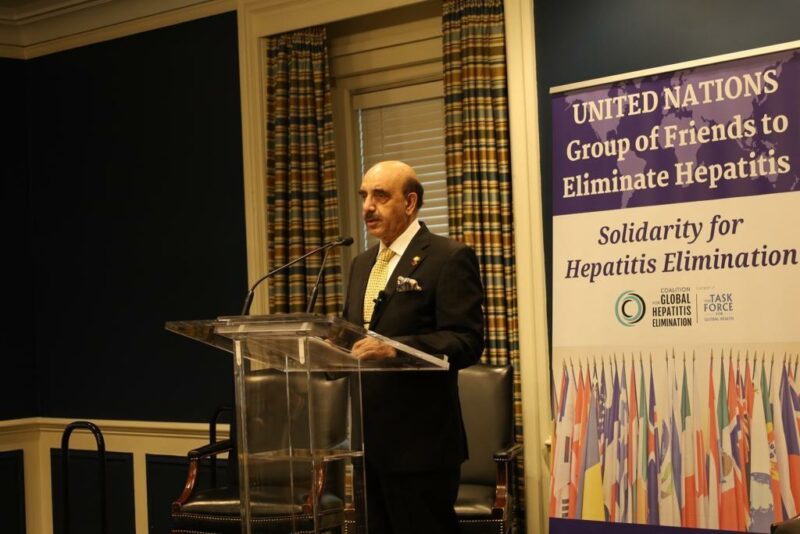NEW YORK: Pakistan’s Ambassador to the United States Masood Khan has said though his country was facing challenges it was committed to having strong partnerships with the international community in its fight to eliminate hepatitis.
Speaking at the second meeting of the United Nations Group of Friends to Eliminate Hepatitis at the Yale Club here, he said Pakistan’s priorities included improving the surveillance, expanding hepatitis B birth dose vaccination, increasing HCV testing and treatment, and engaging community-based organizations.
The meeting was attended by health ministers, WHO officials, ambassadors and representatives of the member states.
Ambassador Khan said the objectives of the Group of Friends aligned perfectly with the overarching theme of UNGA 78, focusing on rebuilding trust and rekindling global solidarity to accelerate progress on the 2030 agenda and its Sustainable Development Goals.
According to estimates, around 12 million people in Pakistan were affected by Hepatitis B and C with 150,000 new cases reported every year.
The multifaceted challenges stemmed from unsafe blood transfusions, unhygienic dental treatments and reused syringes.
Appreciating the Coalition for Global Hepatitis Elimination for launch of National Hepatitis Elimination Profile (N-HEP) Initiative in 2022, Mr Khan said Pakistan had set an a target to screen millions of individuals and treat those affected by hepatitis by 2030.
The government of Pakistan has also formed partnerships with the corporate sector through Corporate Coalition for Viral Hepatitis Elimination in Pakistan (CCHEP), consisting of 12 leading companies.
These alliances, he said, have strengthened our resolve to eliminate viral hepatitis by 2030.


Comments are closed.